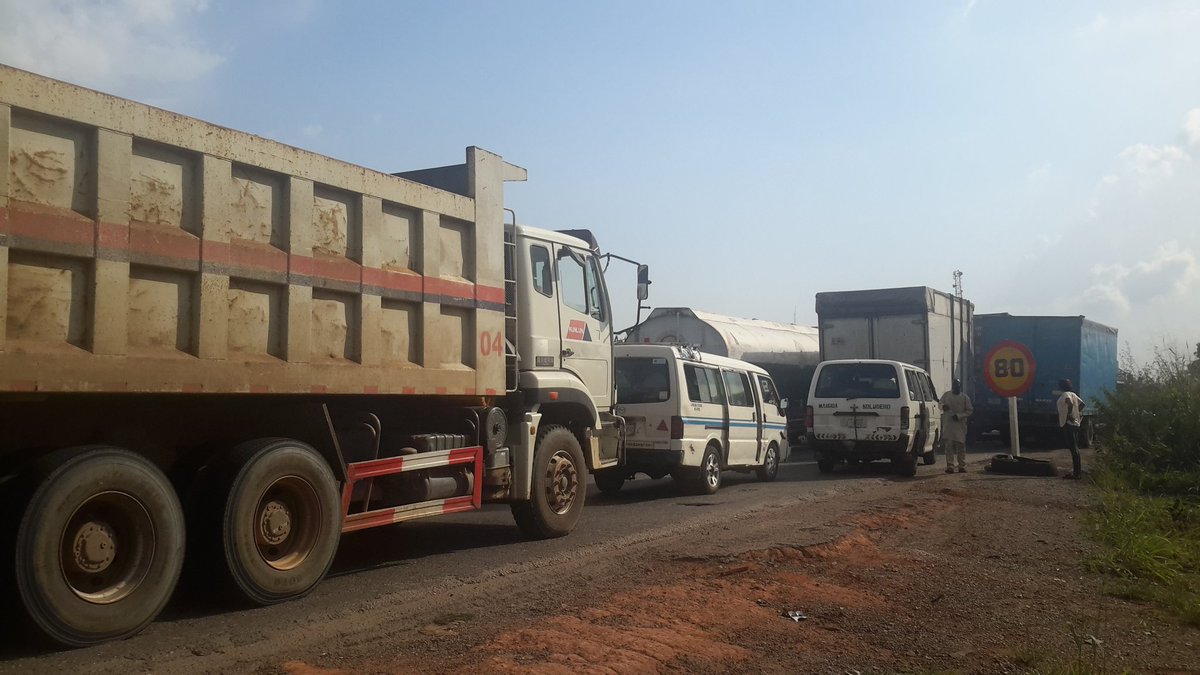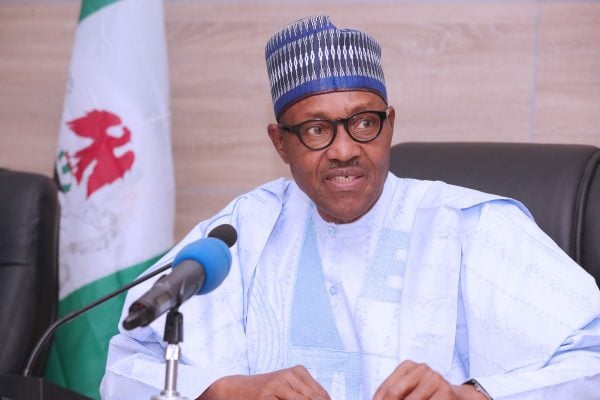If you really want to understand the mess and jungle that Nigeria has become, travel on the Lagos-Ibadan Expressway two or three times in one week. It is sure that on one, if not two, of those occasions, you will encounter the basest of the instinct of Nigerians.
That road, which is 127.6 kilometres long and believed to be the busiest in Africa, as well as the most important to Nigeria’s economy, given the near non-existent rail infrastructure in the country, is a copious testament of the oddity of a rudderless nation camouflaging as a country committed to playing in the comity of nations, while the minds of its people- government and governed is firmly set in the most primitive of times.
The import of this country’s listless and shameful disregard for ethics would possible sink in better when you consider this experience I had on that road in 2004.
I had travelled to Kwara State in the company of some Americans who worked for Village Earth, a non-profit consortium working for the empowerment of rural and indigenous communities around the world, and two significant things about Nigeria’s failing state struck me.
Advertisement
One of the founders of Village Earth, a certain professor of Civil Engineering, known as Maurice Albertson, was with us on this trip. The old man, who later passed on in 2009, was about 86 years-old at this time. I remember that one of the regrets he kept repeating about Nigeria was how the country had turned out to be a huge disappointment by failing to explore its huge agricultural potential.
As we travelled on the Lagos-Ibadan Expressway down to Ibadan-Ogbomoso and then Ilorin, he screamed at the huge expanse of arable land lying fallow all the way and wondered how a country could allow such resource go untapped.
Albertson would later reveal in the course of that trip that as a young teacher and researcher from the University of Colorado in the United States, he had visited Nigeria alongside other researchers sometime in the early 1960s and with what they saw, they had arrived at the definite conclusion that Nigeria was poised to be a leading country in the production and processing of agricultural goods. What he saw four decades later broke his heart!
Advertisement
On the way back to Lagos, we ran into a horrific traffic congestion on the notorious expressway under discussion. Now, such congestions do occur every now and then in every society, so it was not of so much concern to the visitors until they saw tens of vehicles driving against traffic and at incredibly fast pace! One of them, a lady, looked at me in apparent bewilderment and asked: “Do drivers get licensed in Nigeria before they get on the roads?”
My first reaction was that of anger at the condescending question. I wanted to fire back and ask her how she could ask such a question when Nigeria was not one jungle. But then, I realised that there really could be no sane country where people, despite the terrible traffic congestion, would drive against oncoming traffic, at least without some official caution.
I had to temper my mood and explain to the lady that Nigeria, of course, issued licences, but like every society, there were deviants. I did not tell her, though, that deviance was the means by which a lot of Nigerians survived since the leaders of the country did not operate by example. Also, I did not tell her there were hardly consequences for running foul of the law here and that processes are so cumbersome that virtually everyone has found a way to circumvent them, a reason for which millions of fake drivers licences exists all over the country.
It is sad that 15 years after this story, things have gone from bad to worse and Nigerians find themselves driving on this same expressway at the mercy of criminals who are always on the prowl. Of course, the Minister of Works, Power and Housing, Babatunde Fashola, is most definitely going to throw the “magnanimity” of the government he serves at continuing the rehabilitation of this all-important road, which has gone through all sorts of misfortune over the past one decade at us (as if this was not what they were elected for), but he must be reminded that there is no country that exposes its people to the level of dangers and disrespect that Nigerians suffer on this and other highways, such as the Oshodi-Apapa Expressway.
Advertisement
Aside from the fact that this is responsibility, which governments owe the people and the fact that public officials in Nigeria’s democracy must realise that respect for the interest of the citizen should transcend any other consideration, it is curious that people in government at all levels do not see the need to prioritise the completion of these roads, given the harm their current state does to the nation’s economy.
On Tuesday, for instance, an accident involving a petrol-laden tanker and a truck occurred on this road and traffic was at a near stand-still for almost 24 hours. Having learnt to thrive in any situation he finds himself in, the average driver on that road resorted to driving against the traffic, unmindful of the risk that it portends to the lives of other road users and the total confusion that might follow.
But that is what you get when you have a government and government officials who do not care about the welfare of the people. Such a society becomes a jungle, where might is right and every man fights for his own survival by whatever means that is available to him without minding the collateral effect on the society.
If Nigeria took itself more seriously, the Lagos-Ibadan Expressway, which connects Lagos with all other parts of the country, it will realise that it is as important as to receive round the clock attention which should see contractors deliver on the job much earlier than the 2021 completion date that Julius Berger recently indicated.
Advertisement
In addition to that, viable alternative routes would have been created, ahead of the paralysing diversions that the construction company imposes on this very busy road even in the most ill-advised moments.
Given the hypocrisy of members of the political class, religious activities around the expressway have hampered vehicular movement for many years, but these organisations have by themselves become a bit more socially responsible by providing parking lots for their members, amongst other measures lately. However, contractors on the road should ordinarily by mindful of the days that these activities take place and reduce the number of diversions that complicate traffic on such days.
Advertisement
It is also a shame that the Ogun State Government, unlike its Lagos State counterpart, is unable to respond to incidents with the urgency that it desires. And the one that resulted in the most recent gridlock that held motorists in this area for a whole day is not an isolated case. The Ogun State end of this road is just an endless nightmare to which the state government needs to find an urgent solution. Same goes for the Federal Road Safety Commission, which lacks the required equipment and is unable to stop the dangerous habit of driving against traffic.
Seemingly simple issues, such as the state of major roads, tell a lot about the attitude of the Federal Government to revamping the economy and the welfare of its citizenry than all the propaganda the world could see. Even if a gridlock occurs, as it is wont to sometimes, there should be adequate arrangement for the security of commuters.
Advertisement
And for the ordinary Nigerian, as long as you commit “insignificant” infractions, such as driving against traffic and subjugating all other interests to your own, you are as bad as that political leader you complain about. You, indeed, add to the disgrace that Nigeria has continued to be.
Adedokun tweets @niranadedokun
Advertisement
Views expressed by contributors are strictly personal and not of TheCable.
Add a comment







